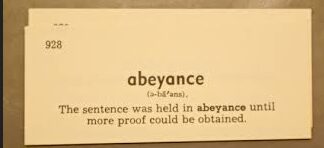Alice Sheldon, known by her pen name James Tiptree Jr., is a seminal figure in the world of science fiction. Her work is celebrated for its innovative exploration of complex themes related to gender, identity, and societal norms. Sheldon’s decision to write under the male pseudonym James Tiptree Jr. was a strategic move designed to navigate and counteract the gender biases prevalent in the science fiction community of her time. This pseudonym allowed her to gain recognition and respect for her work, which might have been otherwise overshadowed by the prejudices against female authors.
Background of Alice Sheldon
Early Life and Education
Alice Sheldon was born on August 24, 1915, into a family with a rich and diverse heritage. Her early life was marked by significant events that shaped her future career. She was educated at various institutions, demonstrating early on her intellectual prowess and curiosity. Her education laid a strong foundation for her multifaceted career, blending her academic achievements with practical experiences in different fields.
Career Before Writing
Before becoming a renowned science fiction author, Alice Sheldon worked in several varied and influential roles. She served as a psychologist, applying her understanding of human behavior to her writing. Her career in the U.S. Army as an officer further enriched her perspectives, providing her with unique insights into authority and structure. Additionally, her work as a journalist honed her skills in communication and storytelling. These diverse experiences contributed significantly to the depth and complexity of her writing, allowing her to tackle intricate social issues and craft compelling narratives.
Her multifaceted career not only influenced her writing but also offered her a broader view of the world, which she skillfully wove into her science fiction stories.

Adoption of the Pen Name James Tiptree Jr.
Choosing the Pen Name
Alice Sheldon adopted the pen name James Tiptree Jr. in the early 1960s, and the choice of name was both deliberate and symbolic. The surname “Tiptree” was inspired by a brand of marmalade that Sheldon enjoyed, adding a personal touch to her pseudonym. The addition of “Jr.” was a nod to the tradition of male pseudonyms, which were commonly used in the literary world to gain credibility and respect. By choosing a name that sounded distinctly masculine, Sheldon aimed to align herself with the expectations of the science fiction genre’s predominantly male audience and industry.
Strategic Decision
In the 1960s, the science fiction community was largely male-dominated, and female writers often faced significant biases. Many female authors struggled to have their work taken seriously, and their contributions were frequently undervalued. By adopting a male pseudonym, Sheldon strategically positioned herself to circumvent these gender biases. The pseudonym allowed her work to be evaluated on its own merits, rather than being judged through the lens of gender. This move was instrumental in helping Sheldon gain the recognition and respect she deserved as a writer, free from the prejudices that might have otherwise affected her career.
Impact and Recognition
Major Works and Contributions
Under the pen name James Tiptree Jr., Sheldon authored several influential and celebrated works. Her stories were known for their innovative approach and profound exploration of complex themes. Notable works include “The Left Hand of Darkness,” which is renowned for its groundbreaking exploration of gender and society, and “The Stars My Destination,” a powerful tale of revenge and transformation. These works, among others, showcased her ability to push the boundaries of science fiction and engage with deep, thought-provoking issues.
Awards and Acclaim
James Tiptree Jr.’s work received significant acclaim, earning several prestigious awards, including the Hugo and Nebula awards. These honors are among the highest accolades in science fiction, reflecting the impact and excellence of her writing. The critical reception of her work was overwhelmingly positive, with many praising her ability to address complex themes and craft compelling narratives. Tiptree’s contributions have had a lasting influence on the genre, reshaping perceptions and paving the way for future generations of writers.

Revelation and Legacy
Revelation of Identity
The true identity of James Tiptree Jr. was kept a closely guarded secret for many years. The revelation came in 1977 when Alice Sheldon’s identity was disclosed in a special issue of The New Yorker. The news that Tiptree was actually a woman shocked the science fiction community and the public, leading to widespread discussion and debate. The revelation challenged the prevailing notions of gender and authorship, as many had been unaware that the acclaimed writer was a woman. The reaction was mixed; while some celebrated the disclosure and its implications for gender equality, others struggled to reconcile their perceptions of Tiptree’s work with the new understanding of her identity.
Enduring Legacy
The impact of Alice Sheldon’s work as James Tiptree Jr. extends far beyond her initial success. Her pseudonym played a pivotal role in reshaping perceptions of gender and authorship in science fiction. By using a male pen name, she not only navigated the biases of her time but also highlighted the systemic barriers faced by women writers. Her work continues to be relevant, influencing contemporary discussions on gender, identity, and creativity. Tiptree’s legacy endures through the continued study and appreciation of her stories, which remain significant in the literary world for their innovative exploration of complex themes and their challenge to conventional norms.
Conclusion
Alice Sheldon’s contributions to science fiction as James Tiptree Jr. are both profound and enduring. Her decision to use a pseudonym was a strategic response to the gender biases of her time, allowing her to gain recognition and respect in a challenging environment. Her work, characterized by its depth and originality, continues to influence the genre and inspire new generations of writers. Reflecting on her legacy underscores the importance of diversity and the need to overcome biases in literature, highlighting how creative expression can transcend barriers and enrich our understanding of the world.
Resources for Further Reading
- “James Tiptree, Jr.: The Double Life of Alice B. Sheldon” by Julie Phillips
- This comprehensive biography provides an in-depth look at Alice Sheldon’s life and her work under the pen name James Tiptree Jr. It explores her career, personal experiences, and the impact of her writing.
- Link to book
- “Tiptree: The Science Fiction of James Tiptree, Jr.” edited by Lisa Tuttle
- This collection of critical essays and discussions delves into the work and impact of James Tiptree Jr., offering valuable insights into her contributions to the science fiction genre.
- Link to book
- “The Tiptree Awards” (official website)
- This website provides information about the Tiptree Awards, which honor works of science fiction and fantasy that explore and expand our understanding of gender. It also offers details about James Tiptree Jr.’s legacy.
- Link to website
- “Science Fiction Hall of Fame”
- The Hall of Fame includes entries on James Tiptree Jr. and highlights her significant contributions to the science fiction genre, celebrating her enduring influence and impact.
- Link to Hall of Fame
Frequently Asked Questions (FAQs)
1. Who was Alice Sheldon, and why is she important in science fiction?
Alice Sheldon, who wrote under the pen name James Tiptree Jr., was a significant figure in science fiction known for her groundbreaking work. Her writing explored complex themes related to gender, identity, and society. She is recognized for her innovative storytelling and her influence on the genre.
2. What is the origin of the pen name James Tiptree Jr.?
The pen name “James Tiptree Jr.” was inspired by a brand of marmalade that Alice Sheldon enjoyed. The addition of “Jr.” was a nod to traditional male pseudonyms, reflecting the literary convention of using male names to gain credibility and respect.
3. Why did Alice Sheldon choose to write under a male pseudonym?
Sheldon chose to write under a male pseudonym to overcome the gender biases prevalent in the science fiction community. By adopting a male name, she aimed to ensure her work was evaluated on its merits rather than being influenced by her gender.
4. What are some of the notable works written by James Tiptree Jr.?
Some of James Tiptree Jr.’s notable works include “The Left Hand of Darkness,” which explores themes of gender and identity, and “The Stars My Destination,” a tale of revenge and transformation. These works are celebrated for their originality and depth.
5. What impact did the revelation of James Tiptree Jr.’s true identity have?
The revelation of James Tiptree Jr.’s true identity as Alice Sheldon in the late 1970s was a significant moment in science fiction. It challenged conventional notions about gender and authorship, leading to widespread discussion and reflection on gender biases in literature.
6. How did James Tiptree Jr.’s work influence the science fiction genre?
James Tiptree Jr.’s work had a profound influence on the science fiction genre by introducing innovative themes and challenging traditional gender roles. Her stories contributed to a broader understanding of gender and identity, reshaping perceptions within the genre.
7. What are the Tiptree Awards, and why are they significant?
The Tiptree Awards, named in honor of James Tiptree Jr., recognize works of science fiction and fantasy that explore and expand our understanding of gender. The awards celebrate Tiptree’s legacy and continue to promote diversity and inclusivity in literature.
8. Where can I find more information about Alice Sheldon and James Tiptree Jr.?
For further reading, you can explore:
- “James Tiptree, Jr.: The Double Life of Alice B. Sheldon” by Julie Phillips.
- “Tiptree: The Science Fiction of James Tiptree, Jr.” edited by Lisa Tuttle.
- The Tiptree Awards (official website).
- Science Fiction Hall of Fame (which includes details on Tiptree’s contributions).




